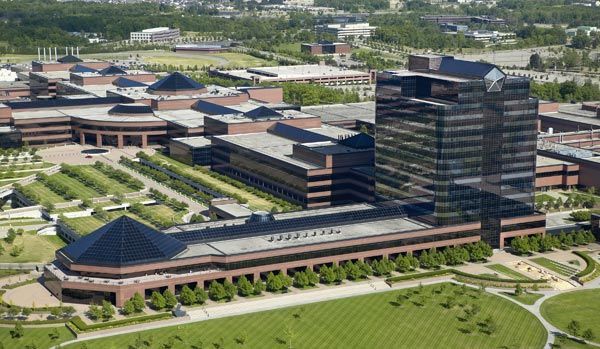I'll admit it: I love the Chrysler ad campaign "Imported from Detroit," which debuted in February's Super Bowl spot starring Eminem.
What can I say? I'm a sucker for hometown pride. I was born about 60 miles downriver from the Motor City in Toledo, Ohio, a town sometimes known affectionately as "Little Detroit." I remember when it was considered treasonous to drive a foreign car.
That's the brilliance of these ads. They appeal to our inner urge to root for the underdog, our nostalgia for simpler days. Those flashes of a grand-looking Woodward Avenue. The water tower that proudly shouts "Birmingham, Michigan."
It's also very telling, the commodification of Detroit. It says something about Americans' new-found fascination with cities -- the same fascination that has inspired many young entrepreneurs who are working to reinvent Detroit.
But Chrysler is selective about the Detroit it celebrates. Absent is the ruin that now accounts for a large share of the city. Invisible is the crushing poverty, constantly present in the urban landscape. The driver in the most recent installment, traveling out from the center of Detroit to its suburbs, is in control of his fate (thanks to his snappy ride) in a way few in the region really are.
Despite the defiant sentimentality of its ads, Chrysler, as well, is selective about its commitment to the city of Detroit.

If the man in the commercial were a Chrysler employee, we wouldn't see him pulling out of a downtown parking garage. In the 1990s, Chrysler traded its headquarters in Highland Park, a tiny urban enclave nestled within Detroit's borders, for a new suburban office park in exurban Auburn Hills.
Chrysler's decision was by no means remarkable for the Detroit region, where job sprawl is more the rule than the exception. Only seven percent of the region's total jobs are within three miles of the urban core anymore. You can make a strong case that sprawl, more than de-industrialization, is responsible for the city's decline.
Meanwhile, Highland Park has never been able to replace the tax revenue that Chrysler's employees delivered. In the last 20 years, the city has shed half its total population. Now, local officials are going to extreme measures to weather the recession. They grabbed headlines nationally last week when they decided to stop illuminating streetlights in order to save $4 million.
But who could blame Chrysler for trying to cash in on Detroit pride. After all, "Imported from Auburn Hills, Michigan" just doesn't have the same ring, does it?





